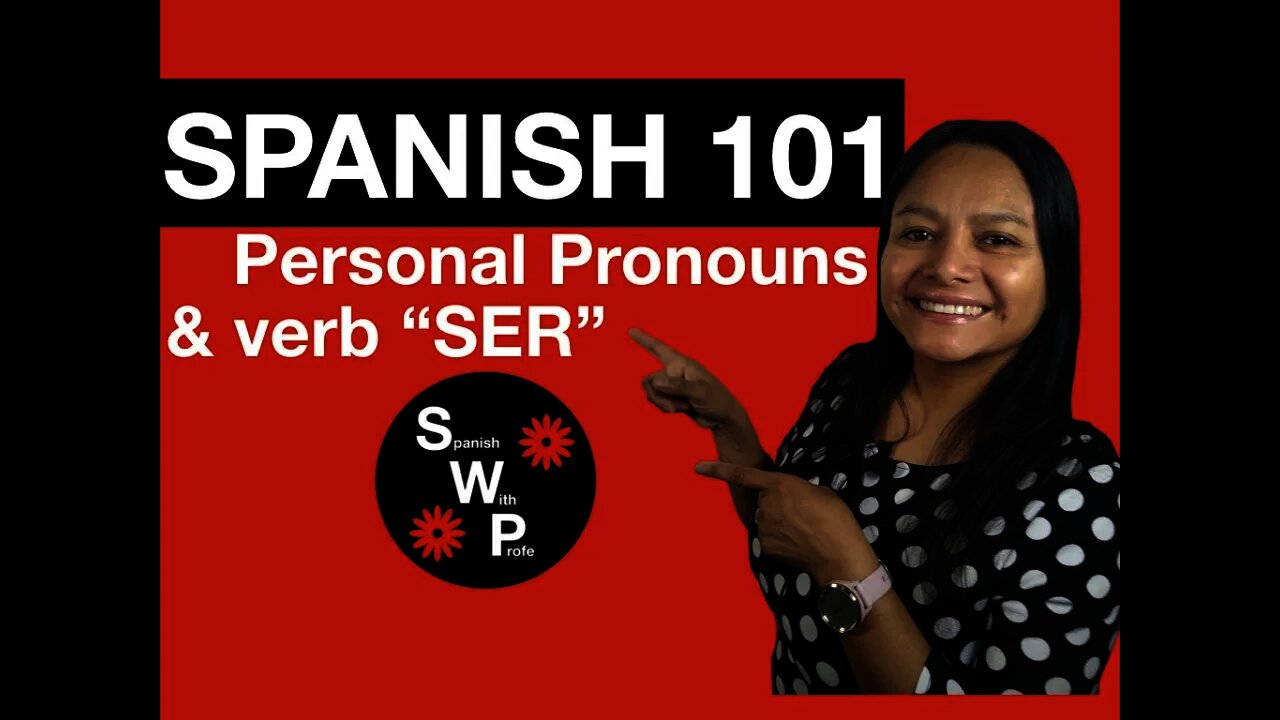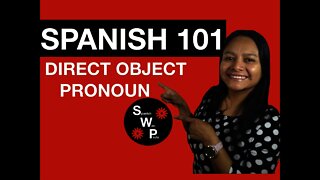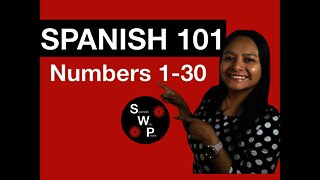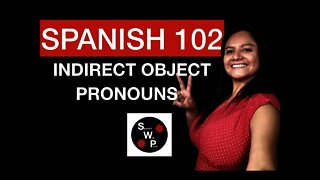Premium Only Content

Spanish 101 - Learn Personal Pronouns in Spanish and Learn the Spanish verb SER - Spanish With Profe
In this video we will learn Personal Pronouns in Spanish and the verb SER.
Just like in English, Spanish has personal pronouns to refer to the first person singular & plural, to the second person singular & plural, and to the third person singular and plural.
Subject Pronouns
Singular Plural
Yo - I Nosotros/Nosotras- We
Tú - You Vosotros/ Vosotras- You all (Used primarily in Spain)
Él - He; Ella - She Ellos - They; Ellas - They; Ustedes - You all
Usted (You-formal) (Latin American )
Ellos= all males or a combination of males and females in a group
Ellas= all females
Ustedes= You all
Ser= To be
In Spanish "Ser" is used to talk about: nationality, time, career/profession, relationships.
Ser is an irregular verb. In Spanish verbs have a distinct conjugation that goes with its corresponding subject pronoun
Soy (yo) Somos (nosotros/ nosotras)
Eres (tú) X
Es (él, ella, usted) Son (ellos, ellas, ustedes)
Some vocabulary words related to nationalities: nationalities are lower case and will denote number (singular (s); plural (pl) and gender (masculine (m); feminine (f))
irlandés (Irish male (s))
irlandesa (Irish female (s))
irlandeses (Irish males or a combination of males and females (pl))
irlandesas (Irish all female (pl))
japonés (Japanese male (s))
japonesa (Japanese female (s))
japoneses (Japanese all males or a combination of males and females (pl))
japonesas (Japanese all female (pl))
francés (French male (s))
francesa (Frech female (s))
franceses (French all males or a combination of males and females (pl))
francesas (French all female (pl))
chino (Chinese male (s))
china (Chinese female (s))
chinos (Chinese all males or a combination of males and females (pl))
chinas (Chinese all female (pl))
inglés (English male (s))
inglesa (English female (s))
ingleses (English all males or a combination of males and females (pl))
inglesas (English all female (pl))
In Spanish nationalities act as adjectives therefore they will be either masculine or feminine and also singular or plural.
Remember that in Spanish to make a noun or adjectives plural you follow the same rule.
If it ends in a vowel (a, e, i, o, u) + S= francesa + s = francesas (French women)
If it end in a consonant (n, d, l, etc) + ES = irlandes + es = irlandeses = (Irish people all male or a combination of both male and female people)
Also in Spanish nationalities are lower case but names of countries are upper case
Irlanda= Ireland
Francia= France
China= China
Japón= Japan
Inglaterra = England
Some Ways Below To Help Out The Channel Listed Below
► DONATIONS via PayPal (To help support the channel you can donate via PayPal): https://paypal.me/SpanishWithProfe?locale.x=en_US
► ROBINHOOD (Get 1 Stock When You Sign Up. Easy to use app for investing and you get a free stock.): https://join.robinhood.com/grants1730
► WEBULL (Get 2 Stock When You Sign Up):https://www.webull.com/activity/get-free-stocks?inviteCode=uYiu2aNdG46N&source=invite_gw&inviteSource=wb_oversea
► CRYPTO.COM Use my referral link https://crypto.com/app/e3p3g4rc9m to sign up for Crypto.com and we both get $25 USD :
-
 0:33
0:33
Spanish With Profe
2 years agoLearn how to say freeway/ highway in Spanish #carretera #autopista
353 -
 12:12
12:12
Spanish With Profe
4 years ago $0.04 earnedSpanish 101 - Learn the Spanish Alphabet - Spanish With Profe
3011 -
 9:32
9:32
Spanish With Profe
4 years agoSpanish 102 - Learn Demonstrative Adjectives and Pronouns in Spanish - Spanish With Profe
278 -
 8:55
8:55
Spanish With Profe
4 years agoSpanish 101 - Learn Direct Object Pronouns in Spanish for Beginners - Spanish With Profe
225 -
 8:59
8:59
Spanish With Profe
4 years agoSpanish 103 - Learn Stressed Possessive Adjectives and Pronouns in Spanish Spanish With Profe
2809 -
 12:10
12:10
Spanish With Profe
4 years ago $0.04 earnedSpanish 101 - Learn Numbers in Spanish - Spanish Numbers 1-30 - Spanish With Profe
365 -
 6:27
6:27
Spanish With Profe
4 years ago $0.03 earnedSpanish 101 - Learn Spanish ER and IR Verbs - Spanish With Profe
306 -
 5:19
5:19
Spanish With Profe
4 years ago $0.03 earnedSpanish 101 - Learn Spanish Family Vocabulary for Beginners - Spanish With Profe
609 -
 10:43
10:43
Spanish With Profe
4 years ago $0.02 earnedSpanish 101 - Learn Spanish Irregular Verbs for Beginners - Spanish With Profe
336 -
 13:50
13:50
Spanish With Profe
4 years ago $0.02 earnedSpanish 102 - Learn How to Use Indirect Object Pronouns in Spanish - Spanish With Profe
441